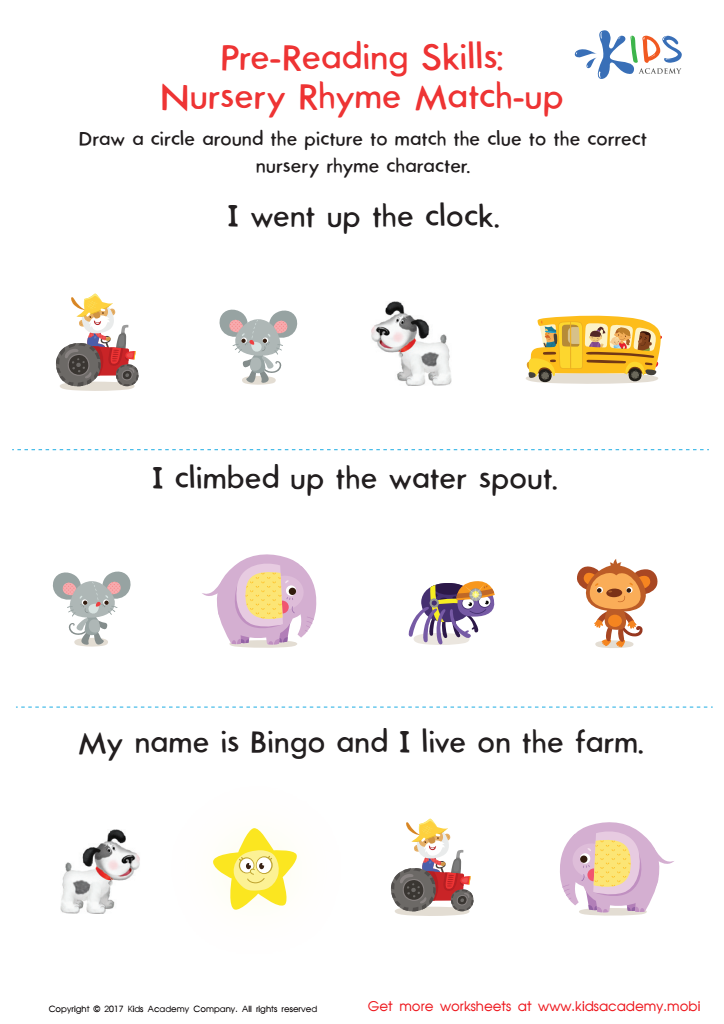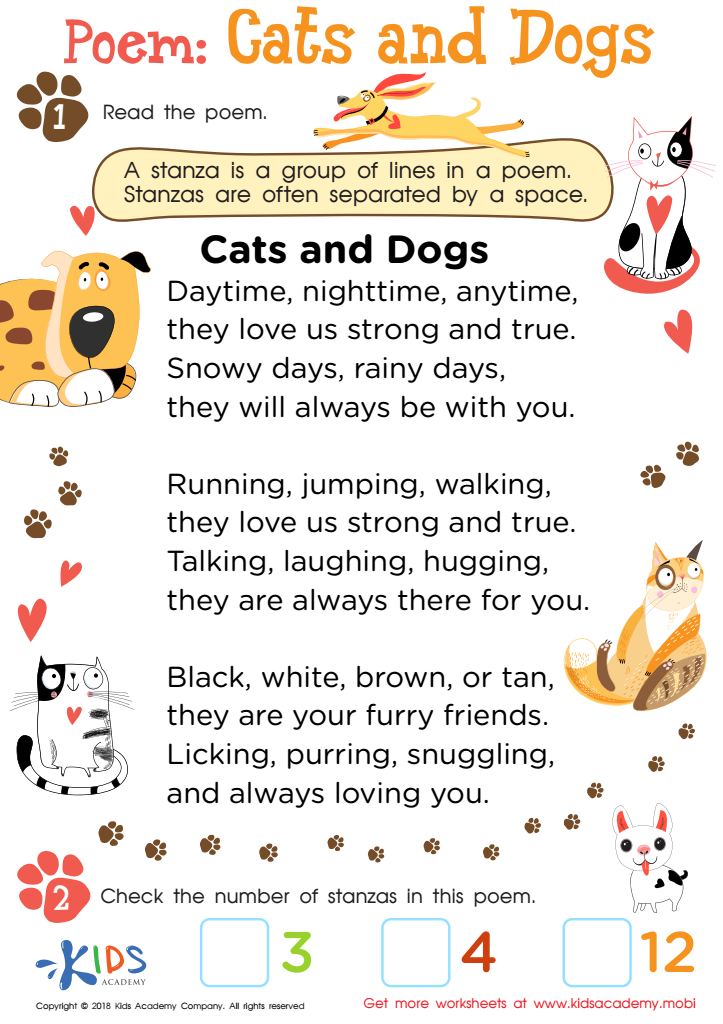Rhyme recognition Phonics Worksheets for Ages 8-9
3 filtered results
-
From - To
Enhance your child's phonics skills with our engaging Rhyme Recognition Phonics Worksheets designed specifically for ages 8-9! These worksheets encourage critical reading and listening exercises while helping students identify and create rhyming words. Featuring vibrant illustrations and interactive activities, they make learning fun and effective. Perfect for classroom learning or at-home practice, our resources support skill development in an enjoyable way. Promote literacy and build a strong foundation in phonics with our easy-to-use worksheets, encouraging adventurous learners to explore language through rhyme. Check out our collection and watch your child's confidence soar as they master rhyming concepts!


Baa Baa Black Sheep Printable


Nursery Rhyme Match–Up Worksheet


Poem: Cats and Dogs Worksheet
Rhyme recognition phonics plays a crucial role in literacy development for children aged 8-9, making it essential for both parents and teachers to prioritize this skill. At this age, children are refining their reading abilities and transitioning from learning to read to reading to learn. Rhyme recognition enhances phonemic awareness, enabling children to identify, manipulate, and combine phonemes, which is fundamental for decoding words. Through engagement with rhymes, children develop auditory discrimination skills that facilitate effective reading and writing.
Moreover, rhyme recognition contributes to vocabulary expansion and comprehension skills. When children play with rhymes, they not only understand word structures but also experience language rhythm and patterns, aiding retention and sentence construction. This interactive approach fosters a love for language and learning, motivating them to explore further.
By incorporating rhyme recognition into both home and classroom activities through songs, games, and poetry, parents and teachers can create a rich, engaging learning environment. Recognizing its importance ensures that children build a solid foundation for literacy, enhancing confidence and academic success as they progress through their education. Ultimately, a focus on rhyme recognition phonics supports overall language development and critical thinking skills essential for lifelong learning.

 Assign to My Students
Assign to My Students















